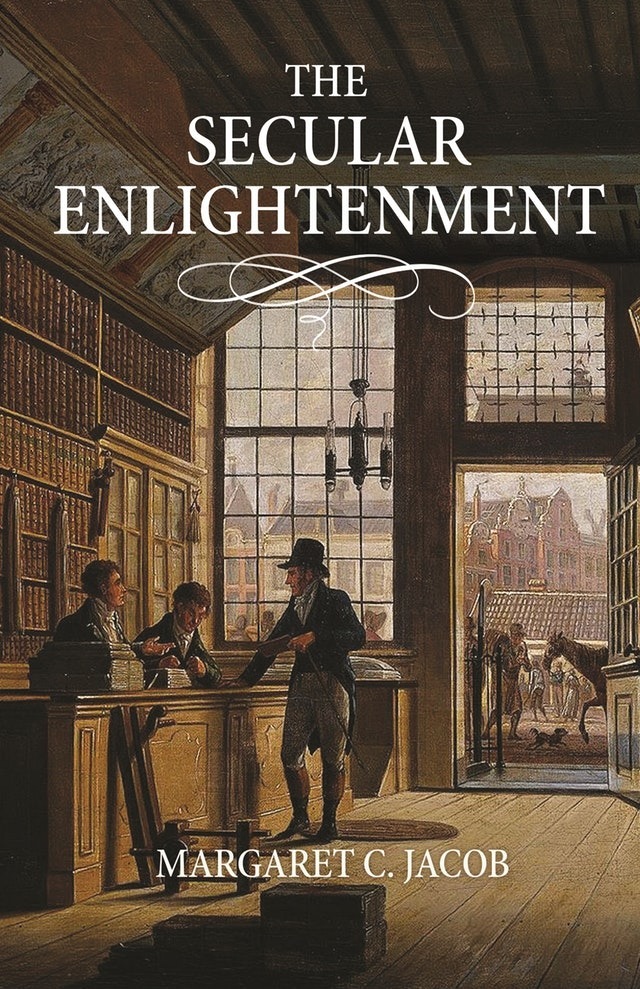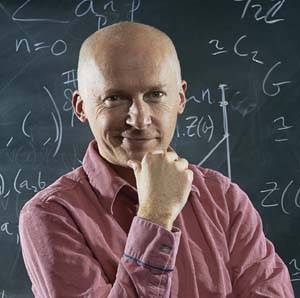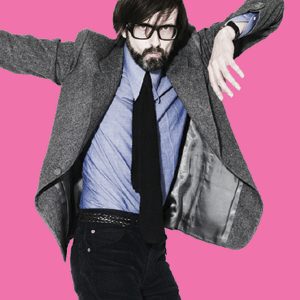
History is often told from the perspective of those at the top of society — the kings and aristocrats who are privileged enough to leave behind traces of their lives for future historians to use. In her book "The Secular Enlightenment" (Princeton University Press), Margaret C. Jacob sets out to examine how the Enlightenment — that gradual shift in thinking in the 17th and 18th century that began to challenge religious hegemony in Europe — transformed the lives of everyday people.
How would you define the Enlightenment?
It's a cultural and intellectual movement that begins in the late 17th century in northern and western Europe, primarily under the pressure of political and international events. The Revolution in 1688-89 in Britain set up a crisis atmosphere, where it looked as if European Protestants were threatened in a way that they had not been before. French Catholics and French Protestants were, once again, at loggerheads. Also, the threat of Catholicism in Britain had been turned around by the Revolution.
Then, to make matters worse, after 1700 the war of Spanish Succession once again created a military engagement between France on one side and Britain on the other. All this contributed to an atmosphere of crisis. Religious intolerance was seen as something being perpetrated by the clergy, and so you get an outpouring of anti-clericalism but also, an attempt to find some other foundation for religious belief, and for intellectual life.
Your book examines the way in which the Enlightenment expanded the sphere of the secular — how did that process of secularisation begin?
Between 1600 to 1750, Western Europeans encountered two new worlds. The first was global, it was on our planet, and this was as a result of overseas trade and exploration. The other was in the heavens, and that's the result of the new science from Copernicus through to Newton. These are two very different worlds, but both required a coming to terms with, for example, all the peoples of the world. The Bible knew nothing about these people.
Similarly, the received wisdom about the structure of the heavens, that the Earth was in the centre, the planets moved around in perfect circular orbits and so forth, that is gradually chipped away at, and undone, by beginning with Copernicus and ending with Newton. If you're an educated person, you have to think about, "What does it mean to have discovered all of these other people, about whom nothing was known, prior to about 1600?" And also, "What does it mean to reset the structure of the heavens?" That's the sort of framework within which it became increasingly possible to challenge received wisdom.
Received wisdom, for example, that kings are kings by divine rights, that they have absolute power. Where's that written down? That only Christians are going to be saved and the other peoples in the world are condemned to a kind of purgatory. Again, that seemed increasingly impossible. These are people who knew nothing about Christianity, and lived centuries, millennia, without a Christian message. How can we condemn them to purgatory, let's say? It meant that if you were alive, and thinking, in say 1700, you had to come to terms with new intellectual settings.
What kind of impact did these huge ideas have on the day to day lives of regular people?
Here you want to go into people's letters and diaries and try to find them thinking about the world, and try to find people who are not well-known, who are educated, ordinary people who are traveling, or who are reading books, and thinking about the world. You begin to see that, at the level of the not highly, but educated people, all sorts of things are now being discussed that had never been discussed, such as the nature of salvation. Who's going to be saved? Who's not going to be saved? What right do the Catholic kings of Europe have to attempt to reimpose Catholicism on their Protestant subjects? Where does that right come from?
You begin to start asking questions on a very basic level. For example, you could find travellers visiting all over Europe, going into churches, not to pray, but to admire the architecture. I think we saw that on a world scale [when Notre-Dame burned down] in a sense that the vast majority of people are not Catholics, did not worship in Notre-Dame, and yet they were deeply stricken by the sheer beauty of the place, and its historical significance. That kind of sentiment you could find it among educated travellers of the early 18th century.
When you're doing this research, you said that you're looking for accounts from people who aren't the famous thinkers and so on, how do you go about that?
Part of it is sometimes getting lucky. Going into an archive, and finding sources that are contemporary with the period you're interested in, picking up a diary, picking up letters, and starting to read and seeing the impact of these events, the political events I've described, the intellectual ones, the impact these are having on quite ordinary people. Some of it, again, means going into archives that are not traditionally examined, but which require looking for the signs. For example, I've worked in the archives of Namur, in Belgium. Now, Namur was a fortress city. It was of no consequence, in terms of Paris, London, Amsterdam.
I went in there and I looked for the records of their bookstores, to see what they were selling. There, I found that the police, the authorities, were deeply concerned about what was being sold in the bookstores. I found records that the policemen had collected. All of the "bad books," as they put, including works by John Locke, his treatise on education, his treatise on secular government. There was Voltaire. There were all sorts of things you would not expect, necessarily, in Namur, but the police had come to expect them and were looking for them. So again, this was like going into a tiny corner of Europe, and finding evidence of a spreading intellectual movement.
When you're looking at these kinds of accounts, did you notice a difference in the everyday manifestations between the different locations that you're researching?
Yes and no. In general, I would say that in Protestant Europe, it was harder to impose strict censorship than it was in Catholic Europe. Namur is part of the Austrian Netherlands, it's obviously been policed in terms of censorship. It was not possible to pull off the same kind of policing in, say, England or the Dutch Republic, nor was there the desire, necessarily. In Catholic Europe, by 1700, there was a feeling that things were turning against the church, and the church needed to protect itself from heresy. So, for example, the French police, bless their hearts, they must have been an awful scourge, but they left us historians, great records.
They went spying on everything, anybody they could get. They would sit in cafes and try to listen, they would rush into bookstores, and again, to examine the inventory to see what was there, and what should not be there. They have left a very rich set of archives that show us a world where people were circulating books that were forbidden, and that were clandestine.
How did attitudes to Christianity change in this period?
You have to make a distinction between Protestant and Catholic Europe. Protestant Europe, you're seeing many more sectarian movements that have a highly rationalist basis. For example, Unitarianism becomes fashionable by the mid-18th century in Britain and American colonies. Unitarianism is a very cerebral form of Christianity that lays very little emphasis on ceremony, and it also insists that people should worship God and God alone, and that Christ is a great prophet, but he is not the Son of God. That's one kind of movement.
In other places, in the Dutch Republic, for example, you have groups like the Collegians. We don't know very much about them, but Spinoza was a great friend of theirs. The Collegians, again, believed in very little ceremony and they practiced a public worship where people would get up and talk about what they were feeling. That is a very different kind of religiosity from attending mass. On the other extreme, it's exactly in this period that the most outrageous text of the 18th century makes its appearance. That was called Le Traité destrois imposteurs and it labeled Jesus, Moses, and Mohammed as the three great impostors.
That was deeply offensive then, as it is now, in certain quarters, and the authorities in the Dutch Republic, which is where it originated, went out of their way to try to confiscate every copy of the book that they could find. It remained in print well into the 20th century, and is the most extreme form of anti-religion that you can find in the 18th century.
What assumptions exist in the modern era about the Enlightenment?
One of the things that happens in this discussion is a very real danger of assuming the superiority of secular values, the superiority of areas of the world that are secular. However, having said that, it is the case that the secularism that I'm describing went, by and large, with the development of democratic values and democratic institutions. Thus, you have a very different kind of political order that emerges in societies that have been more secularized. I happen to think that it's better to live in a democracy than in a non-democracy, but I'm not interested in using these sets of ideas as tools to beat on the head of whomever is not a Christian, or whoever does not live in the West, et cetera. That's a very dangerous, nasty road to go down.
You talk at the end of the book about bringing the best of the secular Enlightenment into the future. I wonder, what aspects are you referring to there?
Well, I'm thinking, for example, of the 1948 UN Universal Declaration of Human Rights. Human rights is a secular value. Promoting it, it seems to me, will also make life better for people who don't conform, who aren't the same as everybody else. It also means that governments, when they commit atrocities or behave horribly as our current government is trying to, once again, separate children from their parents at our southern border. This is a violation of human rights and it's a violation of Enlightenment ideals. To that extent, we need to stand up against that kind of thing.
How do you see the legacy of the Enlightenment in our lived experience today?
Well, it's a legacy that has to be protected. It's a legacy that's going to be contested. It's going to be contested by all people who have no interest in fostering religious toleration, or democratic government. I think of Saudi Arabia. I also think of my own government as being now retrograde in its values. We'll get rid of this government eventually, but in the meantime, we have to fight to make sure that it does as little damage as possible. It's a contestation, nothing is given here, everything has to be negotiated, and people have to believe in these values if they want to maintain them.

